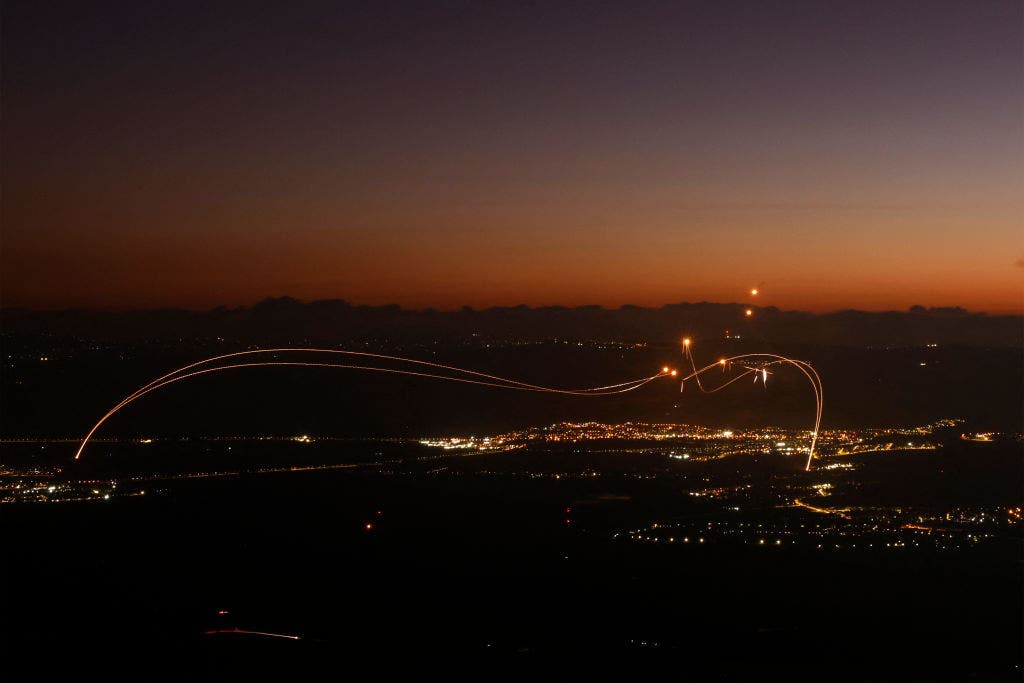At least seven Hezbollah operatives were killed by the Israel Defense Forces (IDF) in southern Lebanon as the terrorist group fired roughly 100 rockets across northern Israel. The IDF confirmed that two of the terrorists killed were involved with Hezbollah’s Rocket and Missile Unit. Among those killed was Muhammad Mahmoud Negm, described as a “significant” operative, and Saeed Mahmoud Daeb. Other operatives were killed in separate strikes across southern Lebanon, including a Hezbollah cell reportedly readying rocket fire from the village of Tayr Harfa. No Israeli injuries or deaths were reported in Israel despite the rocket attacks, with Upper Galilee bearing the brunt of the rocket fire.
The IDF stated that “some” projectiles were intercepted during the rocket attack, but did not specify how many. The rocket attacks come amid tensions between Israel and Iran, with Jerusalem preparing for a potential all-out war following threatening statements from Tehran earlier in the month. Officials from the U.S., Egypt, and Qatar have been working to establish a cease-fire agreement between Hamas and Israel as a means to avoid a larger conflict involving Iran and its proxy forces, including Hezbollah. The ongoing negotiations center around concerns regarding security corridors in Gaza, with Israeli defense officials expressing skepticism that a lasting peace agreement will be achieved even if terms are agreed upon.
Despite efforts to negotiate a cease-fire, Israeli security experts continue to view Hezbollah as the primary threat to the region. Hezbollah is heavily funded by Iran and has a history of engaging in terrorist activities against Israel. The recent rocket attacks by Hezbollah are part of ongoing tensions between the group and Israel, with the IDF responding with targeted strikes against Hezbollah operatives in southern Lebanon. The attacks highlight the complex political and security dynamics in the region, with various actors vying for power and influence.
The escalating violence between Hezbollah and Israel underscores the volatile nature of the Middle East, where conflicts between state actors and non-state terrorist groups contribute to instability and insecurity. The rocket attacks by Hezbollah represent a threat to Israeli civilians and underscore the ongoing challenges faced by Israel in ensuring its security. The IDF’s response to the attacks demonstrates its determination to defend Israeli territory and prevent further escalation of violence. The role of external actors, such as the U.S., Egypt, and Qatar, in mediating cease-fire negotiations reflects the international community’s interest in preventing a wider conflict in the region.
As tensions persist between Israel, Hezbollah, and other actors in the region, the prospects for a lasting peace agreement remain elusive. The underlying political and ideological differences between the various groups involved in the conflict continue to drive violence and instability. The targeted strikes by the IDF against Hezbollah operatives signal Israel’s commitment to defending itself against threats from terrorist organizations. The international efforts to broker a cease-fire reflect a recognition of the need to prevent further escalation and promote stability in the region. Despite the challenges and uncertainties surrounding the conflict, the international community remains engaged in efforts to mitigate the impact of the violence and move towards a peaceful resolution.


